 On February 25, Baptiste Robert, an Android developer and security enthusiast, tweeted to the government of India saying he’d found a way to hack into the portal of the Telangana State Postal Service (TSPost). He’d done a routine SQL injection attack and the portal had responded by spitting out the financial and demographic information of thousands of Indians. The data about welfare benefits, deposits, and loans had all been tied to identifiable names and addresses using their Aadhaar numbers.
On February 25, Baptiste Robert, an Android developer and security enthusiast, tweeted to the government of India saying he’d found a way to hack into the portal of the Telangana State Postal Service (TSPost). He’d done a routine SQL injection attack and the portal had responded by spitting out the financial and demographic information of thousands of Indians. The data about welfare benefits, deposits, and loans had all been tied to identifiable names and addresses using their Aadhaar numbers.Pages
▼
10 March 2018
Aadhaar: India's Flawed Biometric Database
 On February 25, Baptiste Robert, an Android developer and security enthusiast, tweeted to the government of India saying he’d found a way to hack into the portal of the Telangana State Postal Service (TSPost). He’d done a routine SQL injection attack and the portal had responded by spitting out the financial and demographic information of thousands of Indians. The data about welfare benefits, deposits, and loans had all been tied to identifiable names and addresses using their Aadhaar numbers.
On February 25, Baptiste Robert, an Android developer and security enthusiast, tweeted to the government of India saying he’d found a way to hack into the portal of the Telangana State Postal Service (TSPost). He’d done a routine SQL injection attack and the portal had responded by spitting out the financial and demographic information of thousands of Indians. The data about welfare benefits, deposits, and loans had all been tied to identifiable names and addresses using their Aadhaar numbers.Potential Nuclear Weapons-Related Military Area in Baluchistan, Pakistan
by David Albright, Sarah Burkhard, Allison Lach, and Frank Pabian
Pakistan has constructed a hardened, secure, underground complex in Baluchistan Province that could serve as a ballistic missile and nuclear warhead storage site (see figures 1 and 2). The underground complex is near a possible ballistic missile base, first identified in 2016 by Hans Kristensen of the Federation of American Scientists (FAS) and Colonel Vinayak Bhat (Ret.), a military intelligence veteran of the Indian Army.1
The hardened underground complex has three distinct entrances and a separate support area. The entrances are large and can accommodate even the largest possible vehicles. As of 2012, the security was relatively modest, with some possible signature suppression (e.g. no obvious perimeter security). Nonetheless, the site did include at least one possible anti-aircraft position with a guard post at that time. In contrast, 2014 DigitalGlobe images show considerably more physical security in the form of added fencing and checkpoints and several new possible anti-aircraft positions.
China's Military Spending Surge Worries Neighbors
China Is Making a Bold Military Power Play
By David Tweed and Adrian Leung
As lawmakers meet this week to cement Xi Jinping’s power at home, China’s president is also looking to boost his country’s military might abroad. He’s overhauled China’s military to challenge U.S. supremacy in the Indo-Pacific, most visibly with a plan to put half-a-dozen aircraft carriers in the world’s oceans. Still, Xi has a problem: He needs bases around the world to refuel and repair his global fleet. So far, China only has one overseas military base, compared with dozens for the U.S., which also has hundreds of smaller installations.
U.S.-China Balance
The Rising Tide of China's Human Intelligence
By Philip Caruso
 On Jan. 15, FBI agents arrested Jerry Chun Shing Lee, a former CIA case officer, and charged him with unlawful retention of classified information. Lee is the sixth person charged by the Justice Department in the past two years for espionage-related offenses suspected to have been conducted on behalf of the People’s Republic of China. By comparison, prior to 2015, only one or two people on average per year were arrested for such offenses. The increased frequency of arrests—coinciding with a public March 2016 announcement by the Chinese government that intelligence efforts would be more heavily resourced—may indicate that China is scaling up traditional human intelligence efforts against the United States government.
On Jan. 15, FBI agents arrested Jerry Chun Shing Lee, a former CIA case officer, and charged him with unlawful retention of classified information. Lee is the sixth person charged by the Justice Department in the past two years for espionage-related offenses suspected to have been conducted on behalf of the People’s Republic of China. By comparison, prior to 2015, only one or two people on average per year were arrested for such offenses. The increased frequency of arrests—coinciding with a public March 2016 announcement by the Chinese government that intelligence efforts would be more heavily resourced—may indicate that China is scaling up traditional human intelligence efforts against the United States government.China Seeks Global Leadership Through Economic Means, Rather than Through War and Conquest
By Masud Wadan
 China is clearly on the way to regaining its historic position as the world’s largest economy, displacing the US. With a population of 1.3 billion, more than four times as much as the population of the US, China has over 2.3 million in active service, with an additional 1.1 million as reserves. Though China is known for mass-produced goods, it has now clearly put quality ahead of quantity in its developments. The Chinese Communist Party has delivered prosperity to ordinary Chinese, which is why it enjoys their support. Eighty-six percent of Chinese think their country is on the right track.
China is clearly on the way to regaining its historic position as the world’s largest economy, displacing the US. With a population of 1.3 billion, more than four times as much as the population of the US, China has over 2.3 million in active service, with an additional 1.1 million as reserves. Though China is known for mass-produced goods, it has now clearly put quality ahead of quantity in its developments. The Chinese Communist Party has delivered prosperity to ordinary Chinese, which is why it enjoys their support. Eighty-six percent of Chinese think their country is on the right track.China’s big-data big brother
Mark Leonard
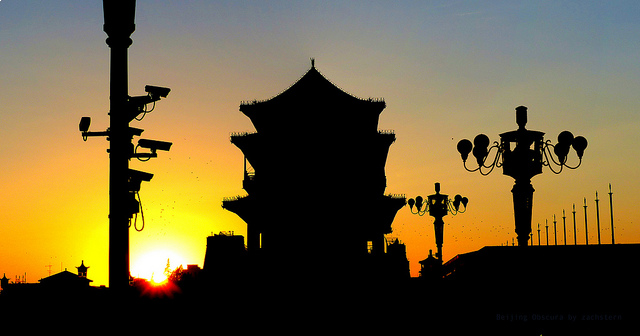 The Communist Party of China’s (CPC) decision this week to eliminate presidential term limits seems to open the door for President Xi Jinping to be not just ‘Chairman of Everything’, but also ‘Chairman Forever’. The move has been met with dismay around the world, but it has also intensified an ongoing debate among China experts over whether the biggest threat to China is too much executive power, or too little. Where one stands on that question seems to depend largely on whether one is a political scientist, an economist or a technologist. Many political scientists and legal scholars, for example, argue against the change because they consider the model of collective leadership that the CPC established after 1979 to be one of its biggest successes. That model’s term limits and system of peer review for high-level decision-making has provided the checks necessary to prevent a repeat of Mao-era catastrophes such as the Great Leap Forward and the Cultural Revolution.
The Communist Party of China’s (CPC) decision this week to eliminate presidential term limits seems to open the door for President Xi Jinping to be not just ‘Chairman of Everything’, but also ‘Chairman Forever’. The move has been met with dismay around the world, but it has also intensified an ongoing debate among China experts over whether the biggest threat to China is too much executive power, or too little. Where one stands on that question seems to depend largely on whether one is a political scientist, an economist or a technologist. Many political scientists and legal scholars, for example, argue against the change because they consider the model of collective leadership that the CPC established after 1979 to be one of its biggest successes. That model’s term limits and system of peer review for high-level decision-making has provided the checks necessary to prevent a repeat of Mao-era catastrophes such as the Great Leap Forward and the Cultural Revolution.How the West got China wrong
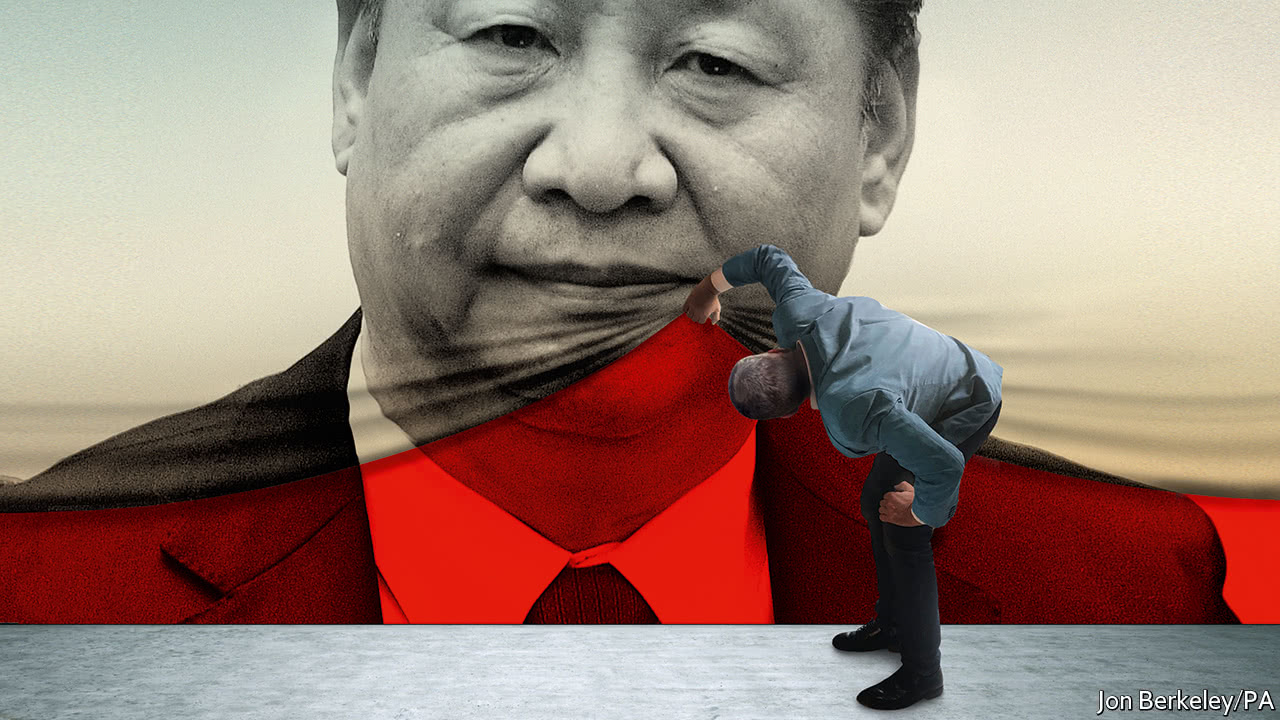 LAST weekend China stepped from autocracy into dictatorship. That was when Xi Jinping, already the world’s most powerful man, let it be known that he will change China’s constitution so that he can rule as president for as long as he chooses—and conceivably for life. Not since Mao Zedong has a Chinese leader wielded so much power so openly. This is not just a big change for China (see article), but also strong evidence that the West’s 25-year bet on China has failed.
LAST weekend China stepped from autocracy into dictatorship. That was when Xi Jinping, already the world’s most powerful man, let it be known that he will change China’s constitution so that he can rule as president for as long as he chooses—and conceivably for life. Not since Mao Zedong has a Chinese leader wielded so much power so openly. This is not just a big change for China (see article), but also strong evidence that the West’s 25-year bet on China has failed.China Wants the Most Powerful Military on the Planet by 2050. And They Might Pull It Off.
Adam Ni
 Chinese President Xi Jinping wants to transform China’s military into the world’s most powerful force by 2050. And he could be on track to do it. On the opening day of its National People’s Congress in Beijing on Monday, China announced a defense budget of 1.11 trillion yuan (US$175 billion) for 2018. That represents an 8.1% increase in its defense budget, compared to a 7% increase last year. China’s military has modernized rapidly in recent years. Since January alone, it has demonstrated new capabilities in stealth fighter jets, drones, naval ships and advanced missiles.
Chinese President Xi Jinping wants to transform China’s military into the world’s most powerful force by 2050. And he could be on track to do it. On the opening day of its National People’s Congress in Beijing on Monday, China announced a defense budget of 1.11 trillion yuan (US$175 billion) for 2018. That represents an 8.1% increase in its defense budget, compared to a 7% increase last year. China’s military has modernized rapidly in recent years. Since January alone, it has demonstrated new capabilities in stealth fighter jets, drones, naval ships and advanced missiles.Preparing for the Urban Future of Counterinsurgency
 Bottom Line: Conflict follows humanity wherever it goes, and the world’s population is increasingly living in cities. Waning are the days of the Maoist blueprint of rural insurgents pillaging small peripheral villages and seeking refuge in the hard terrain of mountainous caverns, dense forests or expansive deserts. Soon terrorist and insurgent groups will mount operations from crowded slums and ritzy skyscrapers – not just in a dense urban landscape, but in coastal megacities that pose a unique challenge for which the U.S. military largely remains unprepared.
Bottom Line: Conflict follows humanity wherever it goes, and the world’s population is increasingly living in cities. Waning are the days of the Maoist blueprint of rural insurgents pillaging small peripheral villages and seeking refuge in the hard terrain of mountainous caverns, dense forests or expansive deserts. Soon terrorist and insurgent groups will mount operations from crowded slums and ritzy skyscrapers – not just in a dense urban landscape, but in coastal megacities that pose a unique challenge for which the U.S. military largely remains unprepared.Has al-Qaeda Learned from Its Mistakes?
by Thomas R. McCabe
The destruction of the Islamic State in Iraq and Syria (ISIS) is undoubtedly a significant success, but it will not be the end of worldwide Islamist insurgencies. The Islamic State may be eradicated, and ISIS as an organization may be eclipsed, but the forces and mentality it represents within Islam and jihadism—virulent intolerance and murderous hyper-violence targeting the entire world, including any jihadists who disagree with it—will continue to wreak havoc throughout the Middle East, Muslim-majority countries, and the world at large. And while it remains to be seen whether ISIS will be able to recuperate from its defeat, it is not the only jihadist group the world faces. In particular, al-Qaeda, including its nominally independent major affiliate in Syria, Hay'at Tahrir ash-Sham,may turn out to be the greater long-term threat, having survived a massive worldwide campaign to destroy it and having modified its strategy to reflect lessons learned from past mistakes.
The Dangers of Failing Middle East States
by Kobi Michael and Yoel Guzansky
In an address to a prominent British think tank, Israeli prime minister Binyamin Netanyahu recently argued that before establishing a Palestinian state, it would be necessary to internalize what had happened in the broader Middle East during the past few years—a reference to the collapsing regional order and the attendant proliferation of failed states. "It's time," he said, "we reassessed whether the modern model we have of sovereignty, and unfettered sovereignty, is applicable everywhere in the world."[1]
What’s behind the sudden ouster of top Saudi military commanders
Bruce Riedel
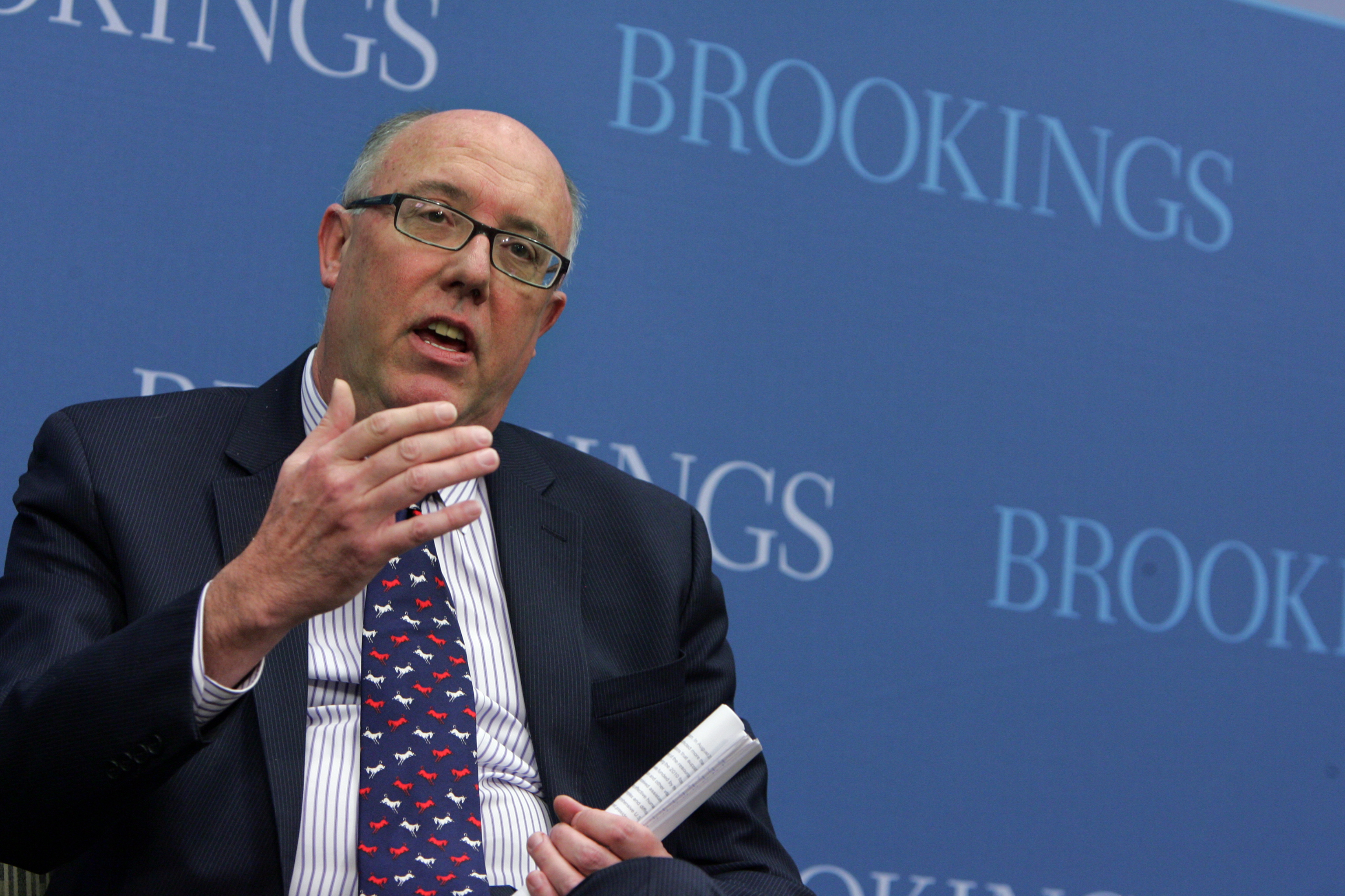 The wars in Yemen will enter their fourth year this month with no end in sight, and the combatants have little interest in meaningful negotiations. The humanitarian catastrophe has been eased only slightly by outside pressure. The regional conflict has become more polarized, with Washington and Moscow now on opposite sides backing Riyadh and Tehran. Saudi Crown Prince and Defense Minister Muhammad bin Salman (known as MBS) fired the joint chiefs of staff of the Saudi military this week. The chairman of the joint chiefs, the army commander, air defense chief, and Royal Saudi Air Force boss were replaced with no explanation. MBS said he wanted “believers” in the top military jobs in his ministry, apparently meaning believers in MBS.
The wars in Yemen will enter their fourth year this month with no end in sight, and the combatants have little interest in meaningful negotiations. The humanitarian catastrophe has been eased only slightly by outside pressure. The regional conflict has become more polarized, with Washington and Moscow now on opposite sides backing Riyadh and Tehran. Saudi Crown Prince and Defense Minister Muhammad bin Salman (known as MBS) fired the joint chiefs of staff of the Saudi military this week. The chairman of the joint chiefs, the army commander, air defense chief, and Royal Saudi Air Force boss were replaced with no explanation. MBS said he wanted “believers” in the top military jobs in his ministry, apparently meaning believers in MBS.Why the U.S. Military Should Stay Out Of Iran
By MAJ. DANNY SJURSEN
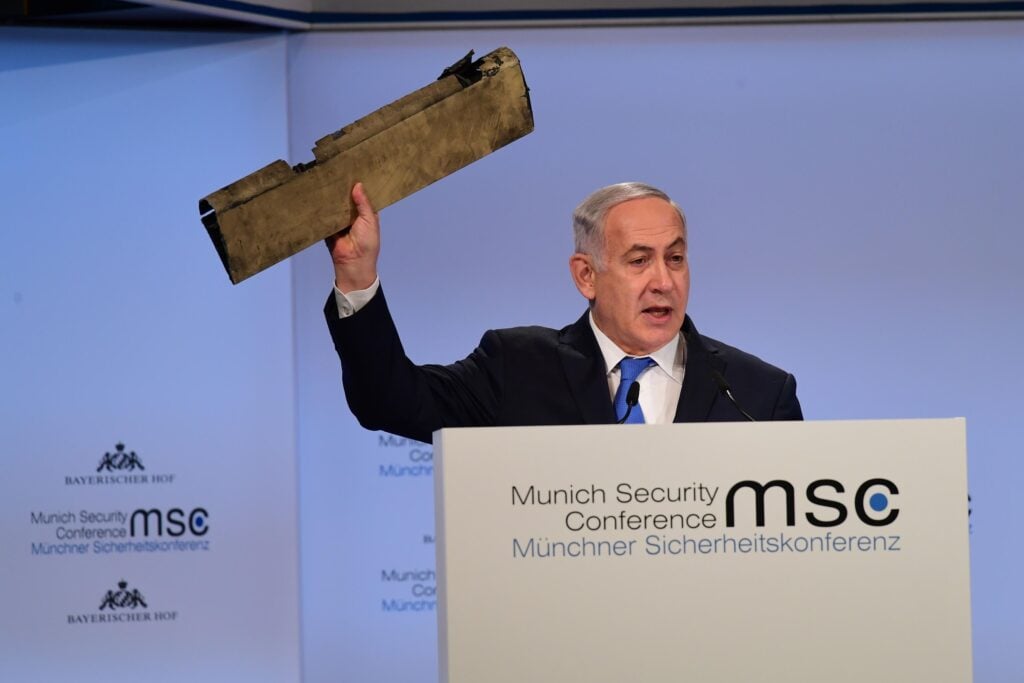 It’s not that often that a major in the US military — albeit now a reservist — points the finger at the Defense Secretary and says, sir, you’re wrong, and does it in writing and in public. Here you have it. Army Maj. Danny Sjursen, expressing his own unofficial opinions, says Iran is Jim Mattis’ blind spot and that his boss is wrong in his assessments of the country. Why? Read on, Dear Reader! The Editor. Last week, after Israel reportedly shot down an Iranian drone and Prime Minister Netanyahu proudly displayed a hunk of twisted metal as a war trophy, Americans were treated to fresh calls for regime change from some prominent neoconservatives.
It’s not that often that a major in the US military — albeit now a reservist — points the finger at the Defense Secretary and says, sir, you’re wrong, and does it in writing and in public. Here you have it. Army Maj. Danny Sjursen, expressing his own unofficial opinions, says Iran is Jim Mattis’ blind spot and that his boss is wrong in his assessments of the country. Why? Read on, Dear Reader! The Editor. Last week, after Israel reportedly shot down an Iranian drone and Prime Minister Netanyahu proudly displayed a hunk of twisted metal as a war trophy, Americans were treated to fresh calls for regime change from some prominent neoconservatives.Who killed European social democracy? Collapse of center left risks destabilizing Continent’s politics.
By MATTHEW KARNITSCHNIG
Social democracy, the most influential force in European politics for decades, is dying. And the result could be political fragmentation, instability and paralysis. In recent months, social democratic parties have been swept from power in the Czech Republic, Austria, France and the Netherlands, adding to a long string of losses since 2010. On Sunday, Italy’s Democratic Party is likely to perform poorly in the national election, finishing behind former Prime Minister Silvio Berlusconi’s right-wing coalition and the anti-establishment 5Star Movement. Among the EU28, that would leave only Malta, Romania, Portugal, Slovakia and Sweden under social democratic leadership.
The World Cries Wolf on U.S. Tariffs
Salvatore Babones
 When U.S. president Donald Trump announced sweeping new tariffs of 25 percent on imported steel and 10 percent on aluminum Thursday, the world’s commentariat broke out in a frenzy of condemnation. Trump was accused of playing politics in a way that could “destabilize the global economy.” It was said that Trump’s actions could “bring global trade growth to a halt” (notwithstanding the fact that levels of global trade have already been declining since 2011). His critics screamed “trade war.” Canadian and European leaders immediately threatened retaliation. China didn’t, but American China experts predicted that Beijing soon would.
When U.S. president Donald Trump announced sweeping new tariffs of 25 percent on imported steel and 10 percent on aluminum Thursday, the world’s commentariat broke out in a frenzy of condemnation. Trump was accused of playing politics in a way that could “destabilize the global economy.” It was said that Trump’s actions could “bring global trade growth to a halt” (notwithstanding the fact that levels of global trade have already been declining since 2011). His critics screamed “trade war.” Canadian and European leaders immediately threatened retaliation. China didn’t, but American China experts predicted that Beijing soon would.What Putin's Exotic New Nuclear Delivery Methods Are Really About
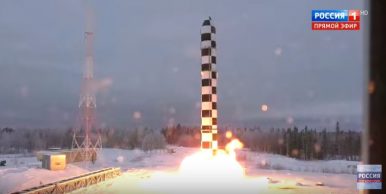 I missed out on yesterday’s missile-heavy news cycle after Russian President Vladimir Putin announced of five new strategic systems during a state of the union address. Each system was designed to strike targets in the United States and add to Russia’s strategic deterrent capabilities. Incidentally, I missed out because I was traveling to speak in Washington, D.C., on the Trump administration’s Nuclear Posture Review (NPR) and regional threats in Asia. (You can watch my panel’s discussion here.) My colleague Franz reported on two of the systems, including the Sarmat intercontinental-range ballistic missile(ICBM) and a new, unnamed, nuclear-powered (yep, that’s right—nuclear powered) intercontinental cruise missile (ICCM).
I missed out on yesterday’s missile-heavy news cycle after Russian President Vladimir Putin announced of five new strategic systems during a state of the union address. Each system was designed to strike targets in the United States and add to Russia’s strategic deterrent capabilities. Incidentally, I missed out because I was traveling to speak in Washington, D.C., on the Trump administration’s Nuclear Posture Review (NPR) and regional threats in Asia. (You can watch my panel’s discussion here.) My colleague Franz reported on two of the systems, including the Sarmat intercontinental-range ballistic missile(ICBM) and a new, unnamed, nuclear-powered (yep, that’s right—nuclear powered) intercontinental cruise missile (ICCM).Israeli Ground Units Building Drone Air Force
By ARIE EGOZI
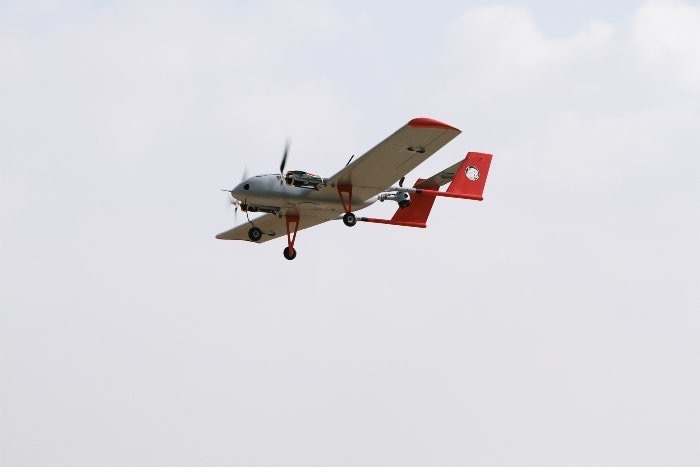 A visit to Israel's increasingly tense border with Syria makes clear that the ground units of the Israeli Defense Forces (IDF) are building their own "air force." The clear benefits of tactical drones have driven the ground forces to deploy more and more aircraft and this has reached the status of a real revolution.The Israeli army’s air force started as “private” initiatives of senior commanders on a “initial test” basis, but the clear benefits of tactical drones have driven the ground forces to deploy more and more aircraft and this has reached the status of a real revolution.
A visit to Israel's increasingly tense border with Syria makes clear that the ground units of the Israeli Defense Forces (IDF) are building their own "air force." The clear benefits of tactical drones have driven the ground forces to deploy more and more aircraft and this has reached the status of a real revolution.The Israeli army’s air force started as “private” initiatives of senior commanders on a “initial test” basis, but the clear benefits of tactical drones have driven the ground forces to deploy more and more aircraft and this has reached the status of a real revolution.THE POWERFUL GLOBAL SPY ALLIANCE YOU NEVER KNEW EXISTED
Ryan Gallagher
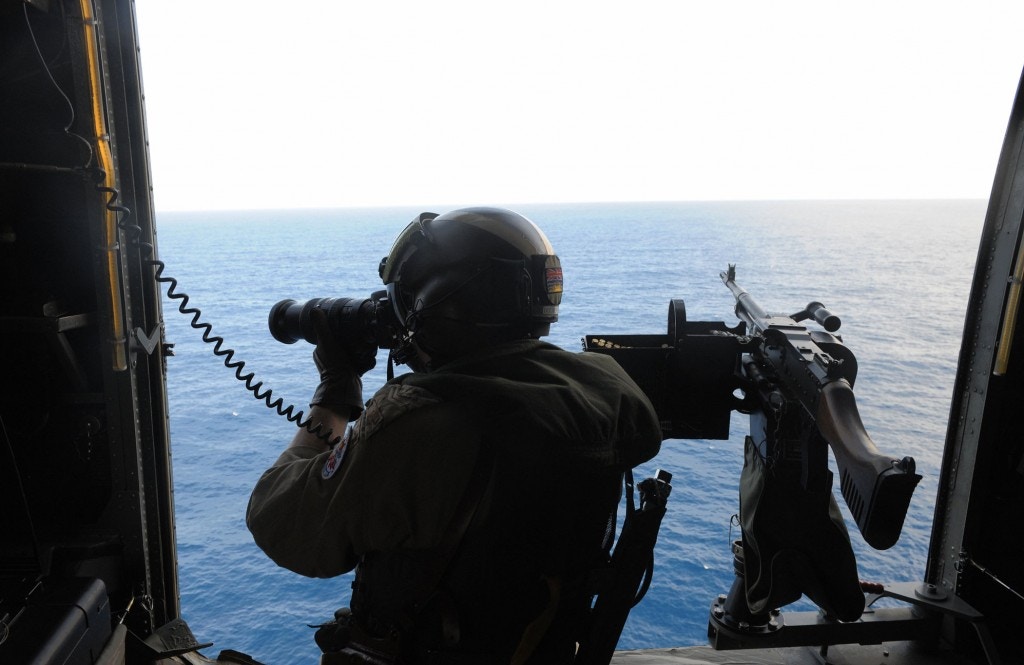 The “SIGINT Seniors” is a spy agency coalition that meets annually to collaborate on global security issues. It has two divisions, each focusing on different parts of the world: SIGINT Seniors Europe and SIGINT Seniors Pacific. Both are led by the U.S. National Security Agency, and together they include representatives from at least 17 other countries. Members of the group are from spy agencies that eavesdrop on communications – a practice known as “signals intelligence,” or SIGINT.
The “SIGINT Seniors” is a spy agency coalition that meets annually to collaborate on global security issues. It has two divisions, each focusing on different parts of the world: SIGINT Seniors Europe and SIGINT Seniors Pacific. Both are led by the U.S. National Security Agency, and together they include representatives from at least 17 other countries. Members of the group are from spy agencies that eavesdrop on communications – a practice known as “signals intelligence,” or SIGINT.An Introvert's Guide To Getting Your Voice Heard In A Meeting
 When you're an introvert, work meetings can feel like a necessary evil. Sure, they're important, but you know that you work most effectively by yourself or in a one-on-one scenario. Even when you have something amazing to contribute, you don't warm to the prospect of speaking up in front of all those people. Take a new approach to those meetings, however, and you’ll discover that they can become not only bearable, but creative and productive. It’s all about capitalizing on your skills and qualities as an introvert and adapting them to the group environment.
When you're an introvert, work meetings can feel like a necessary evil. Sure, they're important, but you know that you work most effectively by yourself or in a one-on-one scenario. Even when you have something amazing to contribute, you don't warm to the prospect of speaking up in front of all those people. Take a new approach to those meetings, however, and you’ll discover that they can become not only bearable, but creative and productive. It’s all about capitalizing on your skills and qualities as an introvert and adapting them to the group environment.Echoes Of The Past In The Debate Over Europe's Future
by Adriano Bosoni
 The European Union is thinking about the kind of bloc it wants to be. As EU members consider a range of reforms - including measures to help the eurozone better withstand crisis and to make European institutions more efficient - the underlying question is whether the bloc should become a federal superstate. The conversation isn't a new one for the Continent. But given the many challenges facing the bloc, and the differing priorities among its members, the latest iteration of the federalism discussion could deepen the divides among the European Union's constituent states.
The European Union is thinking about the kind of bloc it wants to be. As EU members consider a range of reforms - including measures to help the eurozone better withstand crisis and to make European institutions more efficient - the underlying question is whether the bloc should become a federal superstate. The conversation isn't a new one for the Continent. But given the many challenges facing the bloc, and the differing priorities among its members, the latest iteration of the federalism discussion could deepen the divides among the European Union's constituent states.Mackinder’s Century
By Francis P. Sempa
The 20th century was Halford Mackinder’s century. The great British geopolitical thinker married history to geography to understand better than any other observer the broad currents of world politics. One hundred years ago, he wrote his geopolitical masterpiece, Democratic Ideals and Reality (published in 1919). Mackinder’s “prophetic power,” wrote one admirer in 1962, can be seen “on almost every page” of that book. Democratic Ideals and Reality was the product of more than thirty years of study and analysis. Between 1887 and 1918, Mackinder wrote a series of papers that introduced the fundamental geopolitical concepts that formed the bases of his global worldview. His immediate goal, as he wrote in 1890, was to apply “geography to the lighting up of history” because “the greatest events in the world’s history are related to the greatest features of geography.” His ultimate goal, as he wrote in Democratic Ideals and Reality, was to help the Anglo-American democracies “adjust our ideals of freedom to [the] lasting realities of our earthly home.”
Vladimir Putin Flexes His Nuclear Muscles
BY ASHISH KUMAR SEN
 Russian President Vladimir Putin addressed the Federal Assembly, including the State Duma parliamentarians, members of the Federation Council, regional governors, and other high-ranking officials, in Moscow, Russia, on March 1. Russian President Vladimir Putin on March 1 boasted that Russia has developed “invincible” nuclear-capable missiles that can render existing missile defense systems “completely useless.”
Russian President Vladimir Putin addressed the Federal Assembly, including the State Duma parliamentarians, members of the Federation Council, regional governors, and other high-ranking officials, in Moscow, Russia, on March 1. Russian President Vladimir Putin on March 1 boasted that Russia has developed “invincible” nuclear-capable missiles that can render existing missile defense systems “completely useless.”Juncker’s Dangerous Defense Strategy
ANA PALACIO
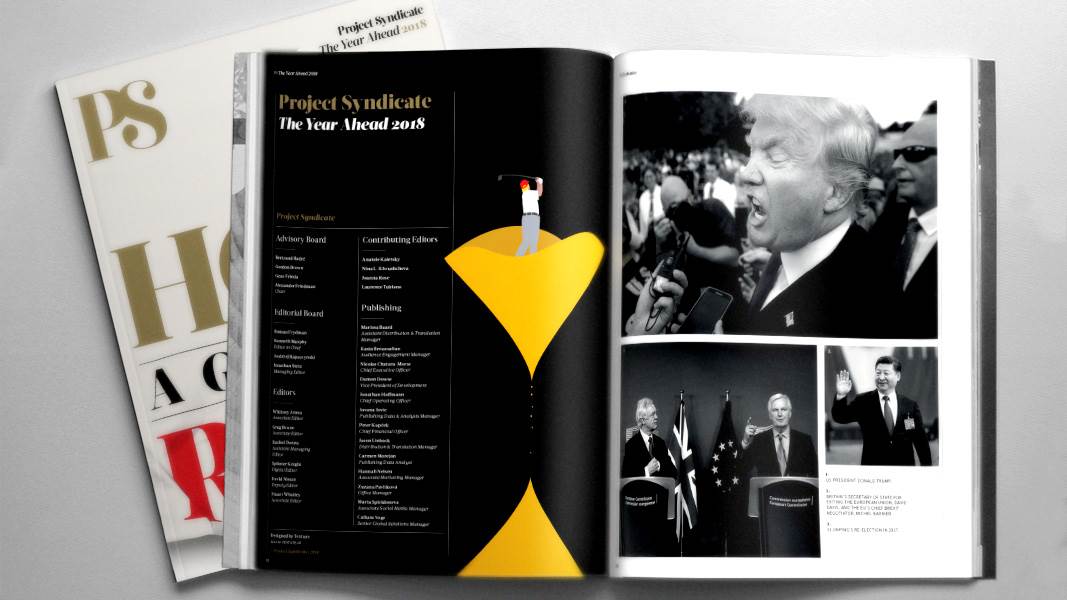 Post-mortems of this year’s Munich Security Conference amounted to something of an indictment of the increasingly rudderless global order. The one big idea – European Commission President Jean-Claude Juncker’s call to shift authority over foreign and defense policymaking in the EU from the member states to the Commission – is a very bad one. MADRID – These days, there are just three events that bring together all of the main actors in international politics: the annual General Debate of the United Nations General Assembly, G20 summits, and the Munich Security Conference. That makes it all the more disappointing that the latest MSC, which took place in mid-February, brought only one big idea – and not a good one.
Post-mortems of this year’s Munich Security Conference amounted to something of an indictment of the increasingly rudderless global order. The one big idea – European Commission President Jean-Claude Juncker’s call to shift authority over foreign and defense policymaking in the EU from the member states to the Commission – is a very bad one. MADRID – These days, there are just three events that bring together all of the main actors in international politics: the annual General Debate of the United Nations General Assembly, G20 summits, and the Munich Security Conference. That makes it all the more disappointing that the latest MSC, which took place in mid-February, brought only one big idea – and not a good one.35 Minerals Absolutely Critical To U.S. National Security
 What do cobalt, uranium, helium, titanium, and fluorspar have in common? According to the U.S. government, these are all minerals that are deemed critical to both the economic and national security of the country. The draft list of 35 critical minerals was released on February 16, 2018 as the result of President Trump’s Executive Order 13817, which asked the U.S. Department of the Interior and the Secretary of Defense to publish a list of mineral commodities that are vital to U.S. interests.
What do cobalt, uranium, helium, titanium, and fluorspar have in common? According to the U.S. government, these are all minerals that are deemed critical to both the economic and national security of the country. The draft list of 35 critical minerals was released on February 16, 2018 as the result of President Trump’s Executive Order 13817, which asked the U.S. Department of the Interior and the Secretary of Defense to publish a list of mineral commodities that are vital to U.S. interests.Why are young, educated men working less?
Richard V. Reeves and Eleanor Krause
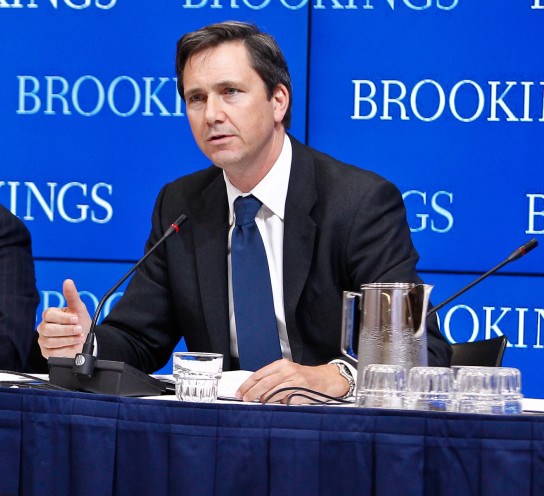 The proportion of U.S. adults in paid work has declined in recent decades. While the fall in male employment gets the most attention, female work rates are declining too. A new NBER paper from Katharine Abraham and Melissa Kearneyprovides a comprehensive review and rigorous analysis of the overall trends, and potential contributory factors including trade, technology, weak demand, and an aging population to name a few Abraham and Kearney suggest that other factors are likely playing a role, too, which are impossible to quantify. These include changes in the social norms around paid work and “improvements in leisure technology” (read: Rainbow Six Siege and other awesome games). Note that their preferred measure of labor market activity is the employment-to-population ratio (see Eleanor Krause and Isabel Sawhill’s guide for a quick explanation of the different employment metrics).
The proportion of U.S. adults in paid work has declined in recent decades. While the fall in male employment gets the most attention, female work rates are declining too. A new NBER paper from Katharine Abraham and Melissa Kearneyprovides a comprehensive review and rigorous analysis of the overall trends, and potential contributory factors including trade, technology, weak demand, and an aging population to name a few Abraham and Kearney suggest that other factors are likely playing a role, too, which are impossible to quantify. These include changes in the social norms around paid work and “improvements in leisure technology” (read: Rainbow Six Siege and other awesome games). Note that their preferred measure of labor market activity is the employment-to-population ratio (see Eleanor Krause and Isabel Sawhill’s guide for a quick explanation of the different employment metrics).Russia's Military Lessons Learned From Syria
Since President Vladimir Putin ordered Russia’s Armed Forces to commence operations in Syria, the campaign has provoked controversy and criticism abroad. Criticism ranges from asserting that it would repeat the experience of the Soviet-Afghan conflict (1979–1989) to risking proxy conflicts with other powers, including the United States. While Moscow has carefully managed these operations, aimed at achieving its objectives with minimal risk and costs to the Russian state, it has generally proved successful in shaking off the legacy of Afghanistan; and the General Staff is certainly exploiting the Syria operations to boost military prestige and extrapolate the lessons learned. However, the potential lessons the General Staff may glean from the complex variety of operational experience in Syria reveals something about the Russian approach to military science. Like no previous conflict since the collapse of the Soviet Union, Moscow has been able to use Syria as a testing ground for personnel, equipment, weapons and experimental systems (Nezavisimoye Voyennoye Obozreniye, February 22, 2018; Technowar.ru, August 23, 2017).
The way we make things is about to fundamentally change
Ric Fulop, Chief Executive Officer and Co-Founder, Desktop Metal Inc.
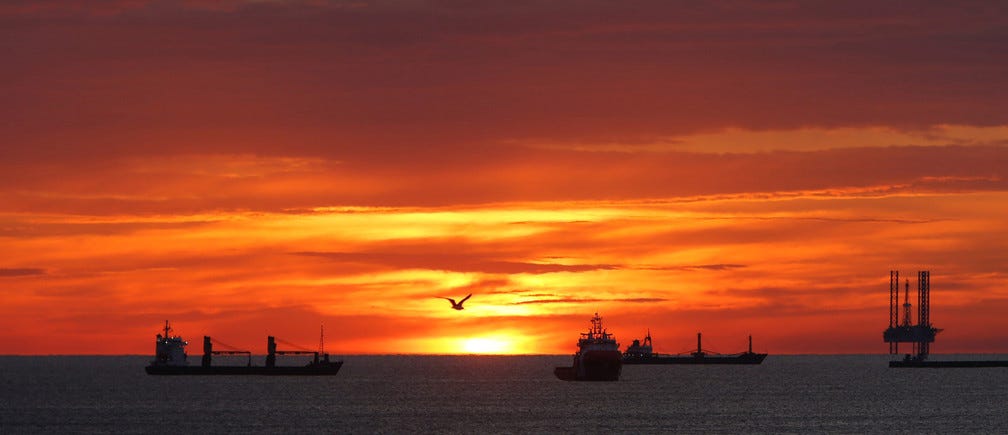 “Tooling” — the process of designing and engineering the tools that are necessary to manufacture parts — was the essential technology behind the early industrial revolution. It allowed manufactured goods to go from humans to machines and powered the production of complex mechanical inventions like the steam engine. With new economies of scale driven by machines, raw materials travelled from developing nations to industrial ones, and cost-effective goods flowed back to other nations across the world. Our modern era of global trade and tariffs began.
“Tooling” — the process of designing and engineering the tools that are necessary to manufacture parts — was the essential technology behind the early industrial revolution. It allowed manufactured goods to go from humans to machines and powered the production of complex mechanical inventions like the steam engine. With new economies of scale driven by machines, raw materials travelled from developing nations to industrial ones, and cost-effective goods flowed back to other nations across the world. Our modern era of global trade and tariffs began.Unlocking value from IoT connectivity: Six considerations for choosing a provider
By Kim Baroudy, Sunil Kishore, Sumesh Nair, and Mark Patel
Companies must take a more nuanced look at connectivity providers as the Internet of Things evolves. The Internet of Things (IoT) is growing rapidly, with 127 new devices connecting to the Internet every second. Although many new applications target consumers, including smart-home systems and connected cars, others help companies optimize operations ranging from manufacturing to customer segmentation. As IoT expands, companies’ connectivity expenditures will rise by about 15 percent annually through 2022. To capture this growth, connectivity providers will extend their coverage and investigate innovative technologies, including low-power, wide-area networks (LPWANs).
 Download PDF
Download PDF
